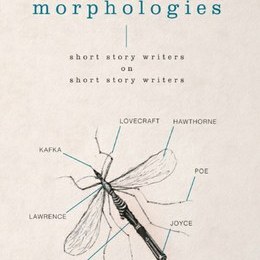For Neil Tennant, it’s been a pop life. From writing pop into his personality, to writing his personality inextricably into pop, music has been at the heart of his biography.
Tennant has remained adept at keeping his private life exactly that, and One Hundred Lyrics and a Poem, the pretext for this afternoon’s audience, is avowedly not an autobiography. It’s more, however, than a hardbound collection of lyrics and, for all that it lacks the flash attraction of free badges or staple-pierced posters, it’s substantially more than a Pet Shop Boys-themed issue of Smash Hits. His life story is there, between the lines, as is the life story of the audience who have grown old with him, as well as those like Christopher Dowell, the hero of Being Boring, who were unable to do so.
The 75 minutes in which poet Andrew McMillan coaxes the non-silent partner in pop’s best-selling double act through anecdote and reflection (time enough for a concept album) seem to pass in no more than the span of a 12-inch remix. It should come as no surprise that one of pop’s most elegant lyricists is also one of its most articulate interviewees. The confirmation is a conversation that ranges metaphorically and often discursively from Che Guevara to Debussy, from John Betjeman to Grandmaster Flash (the twin inspirations for West End Girls) and even to disco beats.
 It starts with a family record collection of three musical soundtracks and a Ray Conniff collection, and a back-garden performance of his first venture into show tunes, The Girl Who Pulled Tails. Looking back, Tennant can discern the beginnings of his own voice in Lerner’s words to My Fair Lady‘s satire of class demarcation through pronunciation Why Can’t The English? And, just as Lerner had his Loewe, the Rodgers to his Hammerstein, Tennant found his Lowe on the Tottenham Court Road.
It starts with a family record collection of three musical soundtracks and a Ray Conniff collection, and a back-garden performance of his first venture into show tunes, The Girl Who Pulled Tails. Looking back, Tennant can discern the beginnings of his own voice in Lerner’s words to My Fair Lady‘s satire of class demarcation through pronunciation Why Can’t The English? And, just as Lerner had his Loewe, the Rodgers to his Hammerstein, Tennant found his Lowe on the Tottenham Court Road.
While pop’s second greatest taciturn keyboard player is not physically present, if not always on Tennant’s mind, he’s never far from the proceedings. Tennant theorises of his partnership with Dowell that “we sort of filled each other’s gaps”, the warmth in his observation amplified by the applause which greets intimations of Lowe’s recent 60th birthday celebrations.
 Tennant is clearly amused and flattered by critic Michael Bracewell’s description of the duo as “a great dynastic novel”, partly because it articulates something of their own shared ambition. The idea of the Pet Shop Boys, perhaps (or perhaps not) drawing on the British editions of Marvel comics it was once Tennant’s lot to edit, was to fashion their “own kind of universe”. Beyond such abandoned strategies as replacing themselves with new recruits on a regular basis, they have always sought to collaborate, looking to learn from “what they can do but we don’t know how to”, whether that be staging shows with the late Derek Jarman or picking out melancholy with Wythenshawe’s own Johnny Marr (who, we are told as an aside, would be keen to record another Electronic album).
Tennant is clearly amused and flattered by critic Michael Bracewell’s description of the duo as “a great dynastic novel”, partly because it articulates something of their own shared ambition. The idea of the Pet Shop Boys, perhaps (or perhaps not) drawing on the British editions of Marvel comics it was once Tennant’s lot to edit, was to fashion their “own kind of universe”. Beyond such abandoned strategies as replacing themselves with new recruits on a regular basis, they have always sought to collaborate, looking to learn from “what they can do but we don’t know how to”, whether that be staging shows with the late Derek Jarman or picking out melancholy with Wythenshawe’s own Johnny Marr (who, we are told as an aside, would be keen to record another Electronic album).
Although the afternoon ends with an ending – Tennant’s elegiac farewell to Dowell in lyrics, Your Funny Uncle – and in spite of talk of that potential career book-end, the greatest hits tour, Tennant’s restless curiosity seems forever one step ahead, over the horizon. Beyond Musik, the duo’s return to the Billie Trix character they created with Jonathan Harvey and Frances Barber in Closer To Heaven, there’s a new album which is said, of course, to be “very different”, and the manifesto that, in Dowell’s spirit and indeed his and Lowe’s own. Whatever comes next, it will never settle for being boring.
One Hundred Lyrics and a Poem is published by Faber & Faber and available to buy now.











